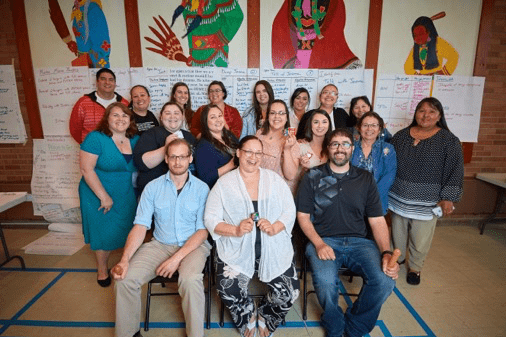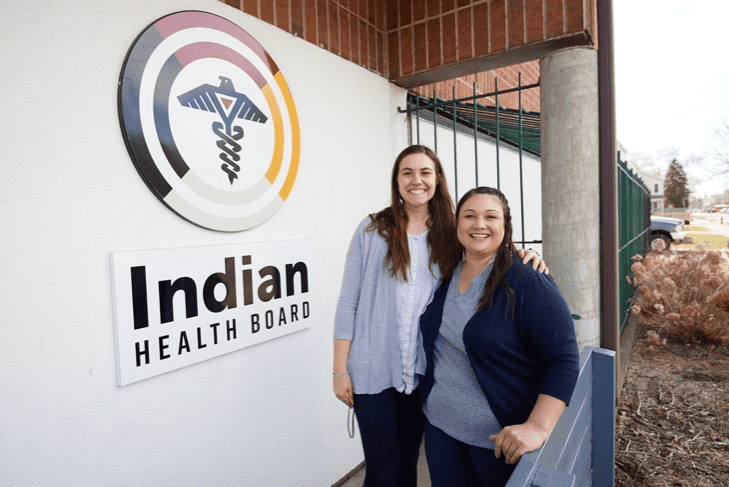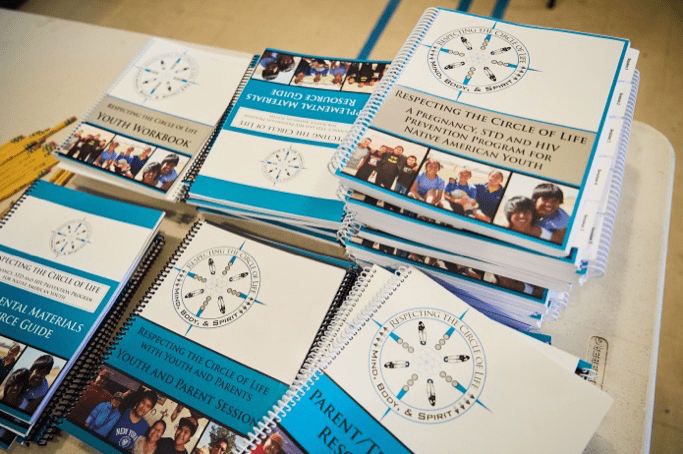Originally published on Indian Country Today.
Nationally, teen pregnancy rates have declined by 67% since peaking in 1991. Yet significant disparities remain. Native American teens have the highest teen birth rate of any U.S. group and 4 in 10 Native American women begin childbearing in adolescence.
Working closely with tribal partners, the Center for American Indian Health (Center) developed Respecting the Circle of Life, a comprehensive sexual and reproductive health program culturally adapted for Native communities. RCL, which serves youth between the ages of 11-19, is the only teen pregnancy prevention program proven to work in Native American communities. The program is now being implemented in settings as diverse as rural Arizona, on the Navajo Nation and—starting this July—the urban industrial core of Minneapolis, Minnesota.
Bringing RCL to urban Indians is vital because 7 in 10 American Indian and Alaska Native peoples now live in metropolitan areas. One of the largest urban American Indian populations is in Phillips, Minneapolis.

To help make RCL available to youth in Philipps and other communities like it, two of the people who developed the program, the Center’s curriculum director Kristin Masten and educator Angelita Lee, trained 17 professionals at the Minnesota Indian Women’s Resource Center (MIWRC) in April 2019.

MIWRC serves families living in some of Minneapolis’s poorest neighborhoods, like Little Earth, a 9.4-acre, 212-unit HUD-subsidized housing complex home to nearly 1,000 people from 32 tribes.
Also present at the training were individuals representing tribes such as Mille Lacs, White Earth, Prairie Island, Red Lake, and other American Indian organizations such as Indian Health Board of Minneapolis, American Indian Family Center, Division of Indian Work, and Indigenous Peoples Task Force.
Offering Culturally-Relevant Teen Pregnancy Prevention Lessons to Minnesota Youth
Following the training, several organizations are planning to offer RCL to youth in Minnesota.
In July, the first RCL camp outside the Southwest will be jointly hosted by MIWRC and the Indian Health Board of Minneapolis, a community clinic established in 1971 focus on culturally sensitive health care and wellness services. The camp will provide culturally-grounded lessons about sexual and reproductive health to 25 young people.
“This is a huge opportunity to deliver culturally relevant sexual health information to the youth we are working with,” said Logan Tootle, a Safe Harbor Youth Worker at MIWRC and an enrolled member of the Cherokee Nation. “I hear so many myths in the groups I run, since the youth we serve are often out of school or in nontraditional school settings where sex ed is not taught,” she said.
The camp will offer information tailored to diverse urban youth who may be housing-insecure, Two-Spirit, trans, and otherwise at risk of sexual exploitation.
“I want to de-stigmatize sex and conversations around sex,” said Delilah Robb, a community health educator at the Indian Health Board and member of the Turtle Mountain Band of Chippewa Indians. “I think that it’s important that the youth are getting this information from professionals,” she said, “so they can take control of their body and their health.”

Logan Tootle and Delilah Robb, who are jointly organizing a teen pregnancy prevention camp in Minneapolis
The Minneapolis teen pregnancy prevention camp, which will be delivered in half-day sessions over 8 days, is luring participants with a dazzling array of cultural offerings: Drumming, lacrosse, beadwork, dreamcatcher-making, round dance, and presentations on traditional medicine by elders—and of course lunch.
Scale-up in Minnesota continues as another training will be hosted by the Northwest Indian Community Development Center and Minnesota Department of Health in Bemidji the week of June 10.
Promoting Reproductive Health Equity Nationally
Starting this month, the Center is disseminating RCL through ETR, a nonprofit organization that helps scale up science-based solutions in sexual and reproductive health and other areas. Communities can purchase the program through ETR’s catalog, which only includes programs with proven evidence. This will be the first program developed for Native American communities in ETR’s catalog. A starter kit is $569—which will cover everything needed for two facilitators to deliver RCL to 12 youth and 12 parents or trusted adults. As part of the kit, the Center for American Indian Health created a comprehensive implementation guide including recruitment materials, camp schedules, and a month-by-month planning guide.
How Respecting the Circle of Life Works
RCL includes a culturally-grounded curriculum taught by Native American educators. Educators deliver eight lessons at a camp and a ninth lesson after camp to participants and parents in their homes. The family-based lesson reinforces content from camp and encourages teens to talk about tough sexual health topics with their parent or guardian.
A first evaluation showed that RCL increased knowledge about how to prevent sexually transmitted infections. It also improved individuals’ confidence in their ability to use condoms, their intention to wear condoms, and their belief that condoms can protect them. The program also improved teens’ ability to negotiate with their sexual partners and talk to their family about sex.
RCL is now part of a national evaluation of innovative programs to prevent teen pregnancy. Additional evidence of its effectiveness is expected to further support rapid scaling of the program to tribal and urban communities across the U.S., building on the experience of the Johns Hopkins Center for American Indian Health, which offers other evidence-based behavioral health programs to Native American families in 120 communities across 17 states.
Learn more about Respecting the Circle of LifeTo bring RCL to your community, contact Lauren Tingey, PhD, Associate Director of the Johns Hopkins Center for American Indian Health, email ltingey1@jhu.edu.

